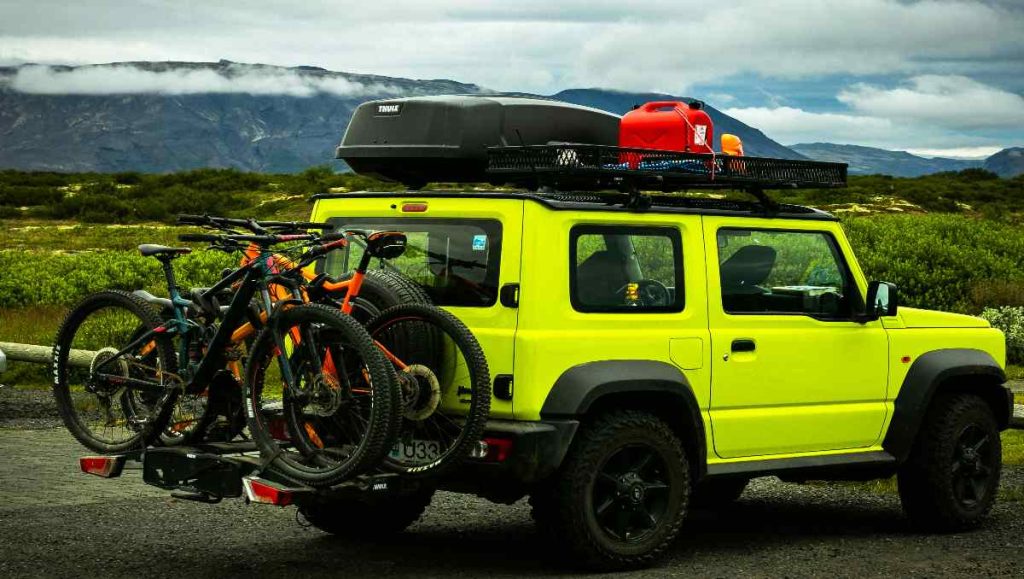As the boundaries between cars and cycles blur, IAA Mobility 2025 in Munich emerged as a defining moment in the global conversation around sustainable urban transportation. Traditionally an automotive-centric event, IAA Mobility has, over the past few years, evolved into a multidimensional mobility show—an arena where high-performance EVs, cutting-edge cargo bikes, AI-driven e-bikes, and integrated urban infrastructure share the same spotlight. This year’s exhibition and summit illustrated not just technological convergence, but a cultural shift. Mobility is no longer just about horsepower and fuel efficiency—it’s about adaptability, sustainability, and user-centric design. The 2025 edition showcased a future where the bicycle is not merely an alternative, but a strategic partner in the larger mobility ecosystem.
The Convergence of Industries
One of the most exciting takeaways from IAA Mobility 2025 was the increasingly collaborative relationship between the automotive and bicycle industries. What was once seen as a divide—cars vs. bikes—is now becoming a shared mission to decarbonize and declutter urban spaces. Automotive giants like BMW, Audi, and Mercedes-Benz unveiled urban micromobility concepts, e-cargo platforms, and even modular vehicle-bike hybrids aimed at last-mile delivery and urban commuting. At the same time, major cycling brands like Canyon, Riese & Müller, and Specialized presented solutions that incorporate automotive-grade safety features, lightweight composite materials from car manufacturing, and AI-based assistance previously exclusive to cars. These cross-sector partnerships are building a new mobility paradigm—less about dominance, more about cohesion.
Automotive-Influenced E-Bike Design
Perhaps no segment better illustrates this bridge than the e-bike. E-bikes at IAA Mobility 2025 looked more like streamlined, high-tech machines than their predecessors just a few years ago. With torque sensors, GPS-guided assistance, built-in lighting systems that respond to ambient traffic conditions, and even HUD-style control interfaces, e-bikes now echo many features of connected vehicles. Bosch Mobility showcased a new e-bike drive system integrated with smart braking technology and adaptive power delivery based on terrain. Automotive-inspired designs included full suspension systems adapted from mountain bike racing and ultra-light frames using carbon fiber composites traditionally found in sports cars. Experts at the expo emphasized how the trickle-down of automotive R&D into cycling tech is elevating not only performance but also user experience and safety.
Smart Cities Demand Smart Mobility
In line with Germany’s Smart City Charter and the EU’s Green Deal goals, IAA Mobility 2025 placed a strong emphasis on urban integration. The exhibit titled “Cityscapes of Tomorrow” featured immersive models of smart intersections, shared mobility hubs, and multimodal transport apps where bicycles, e-scooters, autonomous shuttles, and trains work in seamless harmony. Experts from urban planning firms and civic leaders from Amsterdam, Helsinki, and Munich participated in panel discussions about spatial redesign—arguing that the shift from car-centric to bike-inclusive cities requires both political will and technological foresight. A key insight: smart mobility isn’t only about connected vehicles—it’s about connected infrastructure that supports behavioral change. The presence of mobility-as-a-service (MaaS) platforms and unified payment systems underlined the necessity for convergence on a systems level.
Sustainability in Focus: Bikes and EVs Share a Mission
While the environmental impact of EVs is well-documented, IAA Mobility 2025 demonstrated that bicycles are not just complementary but essential to achieving net-zero mobility goals. Carbon-neutral bicycle production, recyclable materials, and closed-loop supply chains were major themes among cycle brands. Meanwhile, automakers were increasingly positioning themselves as “mobility providers” rather than car manufacturers. This repositioning included investments in bike-share networks, city-wide e-bike fleets, and integrated logistics systems involving both electric vans and cargo bikes. Expert panels addressed how mobility decarbonization must be holistic—encompassing manufacturing, usage, and end-of-life considerations for all vehicle classes. A compelling moment came during the keynote by a Volkswagen sustainability officer, who stated: “In the next decade, the most impactful vehicle we can design might not be a car—it might be a bicycle.”

The Mobility Sandbox: Startups Lead the Way
A recurring theme at IAA Mobility 2025 was the innovation coming from startups working at the intersection of cycling and automotive tech. From adaptive lighting systems that communicate with smart traffic lights, to ultra-compact foldable bikes that integrate with car trunks, the ideas on display were both imaginative and practical. One German startup, Velomate, introduced a smart docking system that allows shared bikes to recharge via solar panels embedded in street furniture. Another, UrbanMeld, presented a vehicle-to-bike (V2B) communication protocol that alerts drivers of cyclists’ proximity through augmented dashboards. These startups, often founded by former automotive engineers and urbanists, are building the connective tissue that will bind tomorrow’s multimodal cities.
The Cultural Transformation of Mobility
Beyond hardware and software, IAA Mobility 2025 highlighted the need for a cultural reorientation. The growing visibility of bicycles at a major automotive event reflected a societal shift in mobility values—towards efficiency, health, sustainability, and shared access. Marketing experts and sociologists at the event discussed the rebranding of bicycles not just as utilitarian tools, but as symbols of freedom and modern identity. In cities where cycling has moved from fringe to mainstream, the status of the cyclist has also evolved—from niche commuter to sustainability pioneer. Public campaigns, influencer marketing, and city-led storytelling are reinforcing this narrative. The presence of major automakers at panels discussing these themes showed that cultural relevance is now just as important as technological dominance.
Regulation and Policy: Enabling Integration
No conversation about mobility innovation is complete without examining the regulatory framework. IAA Mobility 2025 featured roundtables with EU regulators, transport ministers, and mobility advocates discussing how to harmonize policies across vehicle types. From e-bike speed limits and battery recycling mandates to right-of-way laws and helmet regulations, the push for unified guidelines across Europe is gaining momentum. One of the most talked-about initiatives was the proposal for “Mobility Integration Credits,” a system where companies and individuals earn tax breaks or incentives for reducing car use through multimodal commuting. Experts agreed that while tech is moving fast, policy must catch up to ensure equitable, safe, and effective adoption of hybrid mobility systems.
IAA Mobility’s Unique Role in Shaping the Future
What makes IAA Mobility such a significant forum is its ability to bring together stakeholders who don’t often share a stage. Car manufacturers, bike innovators, software developers, infrastructure planners, and government bodies all have a seat at the table—and this collective approach is precisely what’s needed to address the multidimensional challenges of modern mobility. The 2025 edition emphasized that the future isn’t about choosing between cars or bikes—it’s about building ecosystems where each plays a vital role. As cars become more electric, autonomous, and urban-focused, and as bikes become more intelligent, networked, and versatile, their convergence becomes not only logical but inevitable.
Looking Ahead: The Road and the Path Converge
As the doors closed on IAA Mobility 2025, the message was unmistakable: the urban mobility revolution is accelerating, and bicycles are no longer on the margins. They are at the heart of innovation, policy, and environmental action. The fusion of automotive power and cycling ingenuity is not just a temporary trend—it is the blueprint for the cities of the future. From modular e-bikes built with car-grade components to cars designed with the cyclist in mind, we are entering an era where every journey—short or long, powered or pedaled—can be connected, clean, and conscious. For industry leaders, urban planners, and commuters alike, IAA Mobility 2025 offered both inspiration and instruction on how to co-design a future where roads and bike paths meet—not collide.







































Discussion about this post